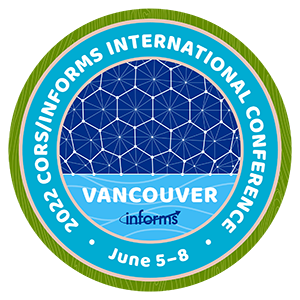Sunday, June 5
Managing Supply Chains in Turbulent Times
The turbulent world today is faced with rapid technological advances, increasing disruptions due to disasters and pandemic, heightened interests in social responsibility and climate changes, and escalating trade frictions. Innovative companies have to navigate the turbulent times and transform their supply chain to face such challenges. Winning the long game requires new supply chain strategies. This is almost like supply chain management is undergoing a renaissance time. In 2004, I published an article in the Harvard Business Review, titled “The Triple-A Supply Chain,” in which I indicated that agility, adaptability and alignment were the three pillars of supply chain management. As I reflected on how the “renaissance supply chain leaders” were doing in redesigning their supply chains, I found that the Triple-A lens have to undergo some fundamental changes. Agility is about how companies can sense and respond to changes fast and effective. The clock-speed of agility has turned to super-agility, requiring a much deeper orchestration of the extended value chains. Adaptability used to be about how companies should adapt their supply chain over time. Now, adaptability is about how to build resilience by creating hybrid systems, leveraging the strengths of different resources and combining them appropriately. Finally, we cannot just align the interests of suppliers or customers, but also those of the bigger ecosystem within which a company operates in. As I examined the new Triple-A, new research ideas also emerged. In this talk, I will also show some such examples of recent research that were sparked by the new Triple-A.
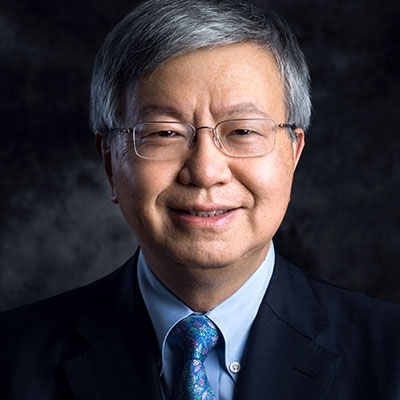
Hau Lee
Thoma Professor of Operations, Information and Technology at the Stanford Graduate School of Business, Stanford University
Hau L. Lee is the Thoma Professor of Operations, Information and Technology at the Stanford Graduate School of Business. Professor Lee’s research interests are on global supply chain management, sustainability, and value chain innovations. He has published widely in top journals, has been the former Editor-in-Chief of Management Science and the former President of POMS. He is a Fellow of INFORMS, POMS, and MSOM, and has been inducted to the US National Academy of Engineering. He received the Harold Lardner Prize for International Distinction in Operations Research from the Canadian Operations Research Society. His co-authored paper, “Information Distortion in a Supply Chain: The Bullwhip Effect,” has been voted as one of the ten most influential papers in the history of Management Science. Besides extensive consulting, he co-founded DemandTec that went public in NASDAQ in 2007. He was the founding chairman of SCM World, which was acquired by Gartner in 2016. He currently serves as an independent non-executive director for several public and private companies. Lee obtained his B.Soc.Sc. from Hong Kong University, his M.Sc. from the London School of Economies, and his Ph.D. from the Wharton School of the University of Pennsylvania.
Harold Larnder Prize:
Creating Success Stories of Operations Research
This talk will share the insights of a researcher and practitioner who in his first 20+ years of career focused on developing models and algorithms, and in the latter 20+ years focused on applying those techniques to solve real-world decision problems faced by transportation and logistics companies. The first part of the talk will describe what techniques appear to be most successful in practice – techniques that are intuitive, practical and use common sense – techniques that you can explain to your grandparents, and they will get those. The talk will give overview of several business problems and techniques that worked very well and why. However, just developing the right models and algorithms isn’t enough to make an impact. The second part of the talk will describe what additional capabilities you need to be a successful practitioner and create success stories for the OR discipline.
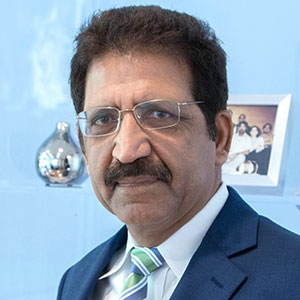
Ravi Ahuja
Founder & CEO at Optym and Former Professor at MIT, University of Florida, & IIT Kanpur
Ravi Ahuja is the Founder & CEO of Optym, a company focused on developing decision autonomy and optimization solutions for the transportation industry. In an academic career spanning 30+ years, he has taught at MIT, Cambridge; the University of Florida, Gainesville; and IIT, Kanpur. Professor Ahuja has made significant contributions to the theory of network optimization and has published 3 books and 100+ research papers and book chapters. The book coauthored by him Network Flows: Theory, Algorithms and Applications received the prestigious Lanchester Prize in 1993, and is the leading text and reference book worldwide in the field of network optimization for the past 30 years. Ravi Ahuja is also the winner of 2003 Pierskalla Award, 2006 Daniel H. Wagner Award, and 2007 Koopman Prize given by INFORMS.
After realizing the need of optimization in the transportation industry, he founded Optym in 2000 to bring the latest R&D from the academics to solve real-world practical problems. With its headquarters based in Dallas, TX, and development centers in Eastern Europe and India, Optym now employs 200+ highly qualified team members. Optym is building SaaS solutions with focus on automating human decision-making, and its clients include world’s largest airlines, railroads, trucking and mining companies.
Monday, June 6
Anti-Human Trafficking Efforts and the Potential of Operations Research
Human trafficking is a complex issue affecting society and economy. Forced labor and sexual exploitation represent a multi-billion-dollar global industry, victimizing tens of millions of adults and children of all gender identities worldwide. It transcends national borders, is prevalent in both impoverished and wealthy countries, and undermines fundamental human rights and a broader sense of global order. Do engineers have a role to play in countering human trafficking activity? I believe they do. To date human trafficking research has primarily focused on qualitative studies, statistical estimations of prevalence, and insights generated from economic models. However, a variety of engineering and analytical techniques have the potential to help address the unique challenges facing anti-human trafficking efforts including: the covertness of traffickers, the hidden nature of victim-survivors, fragmented data, and limited resources. This presentation will discuss ongoing transdisciplinary collaborations in this sphere and draw from several examples of ongoing projects.
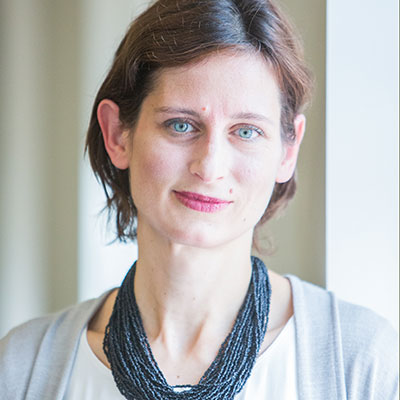
Renata Konrad
Associate Professor of Industrial Engineering at Worcester Polytechnic Institute
Renata Konrad is an associate professor of industrial engineering at Worcester Polytechnic Institute. Dr. Konrad’s research focuses on the application of operations research methodologies to social justice issues and healthcare to improve the quality, timeliness, and efficiency of operations. This research includes using optimization and simulation to inform human trafficking awareness campaigns, to locate housing, to understand the relationship between illegal fishing and exploited labor, and to improve access to primary care. Dr. Konrad’s research is funded by the U.S. National Science Foundation (NSF) and was featured in the 2019 United Nations Report of the Special Rapporteur on Contemporary Forms of Slavery. She has served on the U.S. Department of Transportation Advisory Committee on Human Trafficking and on the U.S. Department of Homeland Security – Science and Technology, Human Trafficking Advisory Committee, and in January 2022 returned from Ukraine where she was on a Fulbright Award. She is a recipient of the Romeo L. Moruzzi Young Faculty Award for innovative teaching. Dr. Konrad earned a Ph.D. in Industrial Engineering from Purdue University, and her masters degree from the University in Toronto.
Plenary Panel:
Role of Operations Research in Pandemic Preparedness: Lessons Learned from COVID-19
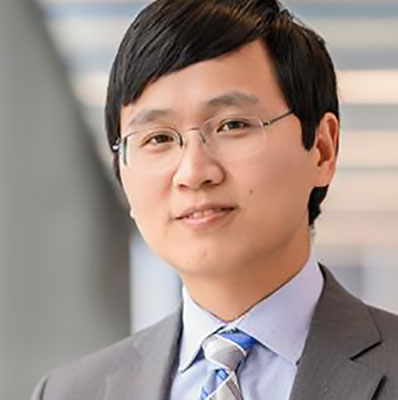
Moderator:
Tinglong Dai
Professor of Operations Management and Business Analytics at Johns Hopkins University
Tinglong Dai is a professor of operations management and business analytics at Johns Hopkins University. He serves on the leadership team of the Hopkins Business of Health Initiative and the executive committee of the Institute for Data Intensive Engineering and Science. As a leading expert in healthcare analytics, Dr. Dai has been quoted hundreds of times in the media, including the Associated Press, Bloomberg, CNBC, CNN, Financial Times, Fortune, Harvard Business Review, New York Times, NPR, PBS, USA Today, Wall Street Journal, and Washington Post. In 2021, Poets & Quants named him one of the World’s Best 40 Under 40 Business School Professors.
Dr. Dai’s research interests span across healthcare, marketing-operations interfaces, and human-AI interaction. His work has been published in leading journals such as Management Science, M&SOM, Marketing Science, and Operations Research, and has been recognized by Johns Hopkins Discovery Award, INFORMS Public Sector Operations Research Best Paper Award, POMS Best Healthcare Paper Award, and Wickham Skinner Early Career Award. He currently serves as an Associate Editor for M&SOM, Naval Research Logistics, and Health Care Management Science, and as a Senior Editor for Production and Operations Management. He graduated from Carnegie Mellon University with a PhD in Operations Management and Robotics in 2013.

Panelist:
John R. Birge
Hobart W. Williams Distinguished Service Professor of Operations Management at the University of Chicago
John R. Birge is the Hobart W. Williams Distinguished Service Professor of Operations Management at the University of Chicago Booth School of Business. He currently serves as the editor-in-chief of the INFORMS flagship journal Operations Research. He studies mathematical modeling of systems under uncertainty, especially for maximizing operational and financial goals using the methodologies of stochastic programming and large-scale optimization. A former dean of the Robert R. McCormick School of Engineering and Applied Sciences at Northwestern University, he has worked as a consultant for a variety of firms, including the University of Michigan Hospitals, Deutsche Bank, Allstate Insurance Company, and Morgan Stanley, and he uses cases from these experiences in his teaching. He is a member of the Institute for Operations Research and the Management Sciences, the Mathematical Programming Society, the Mathematical Association of America, and Sigma Xi. Birge earned a bachelor’s degree in mathematics from Princeton University in 1977 and a master’s degree and a Ph.D. in operations research from Stanford University in 1979 and 1980, respectively. He joined the Chicago Booth faculty in 2004.
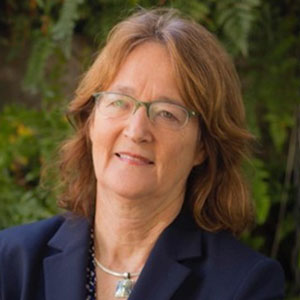
Panelist:
Margaret L. Brandeau
Coleman F. Fung Professor of Engineering and Professor of Health Policy (by Courtesy) at Stanford University
Margaret L. Brandeau is the Coleman F. Fung Professor of Engineering and Professor of Health Policy (by Courtesy) at Stanford University. Her research focuses on the development of applied mathematical and economic models to support health policy decisions. Her recent work has examined HIV and drug abuse prevention and treatment programs, programs to control the opioid epidemic, and COVID-19 response strategies. She is an INFORMS Fellow. From INFORMS, she has received the Philip McCord Morse Lectureship Award, the President’s Award, the Pierskalla Prize (twice), and the Award for the Advancement of Women in Operations Research and the Management Sciences.

Panelist:
Mahesh Nagarajan
Alumni Professor of Stochastic Optimization and the Senior Associate Dean for Research at the Sauder School of Business at the University of British Columbia
Mahesh Nagarajan is the Alumni Professor of Stochastic Optimization and the Senior Associate Dean for Research at the Sauder School of Business at the University of British Columbia. His research interests include stochastic optimization and its applications to operational problems arising in various industries, including health care. He has been involved in modelling work in British Columbia on capacity planning, vaccination processes, and surgical re-opening in hospitals.
Tuesday, June 7
Mathematical Perspectives in Infrastructure Resilience Modeling
Secure and functioning civil infrastructure systems are of paramount importance to society. To ensure that effective services can be provided in a disaster’s aftermath enabling society to recover, agencies charged with managing and operating these systems must invest in measures that safeguard their performance under disaster incidents and less major disruptions. This lecture will describe developed mathematical and algorithmic approaches for quantifying the resilience of individual and interconnected infrastructure lifelines under multiple hazard threats and identifying mitigation, preparedness and response measures with maximum impact. System users play an important role in the services they experience. Thus, both the behavior of technical components and how the system enables its varying users to adapt are considered. Together, critical lifelines support societal activities occurring within building facilities related by a common community function, e.g. health care or education. This lecture continues with the reframing of the resilience analysis taking a community function, or service-based, perspective. From this perspective, human capital (i.e., human infrastructure), equipment and consumable resources can be integrated within the resilience analysis by accounting for their roles in creating and maintaining service capacities.
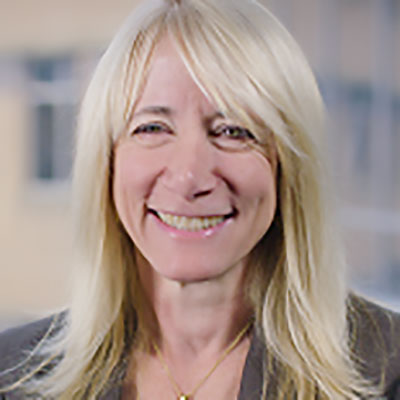
Elise Miller-Hooks
Professor & Hazel Chair in Infrastructure Engineering at George Mason University
Dr. Elise Miller-Hooks holds the Bill and Eleanor Hazel Endowed Chair in Infrastructure Engineering at George Mason University. Prior to this appointment, she served as a program director at the U.S. National Science Foundation and was a member of the faculties of the University of Maryland, Pennsylvania State University and Duke University. Dr. Miller-Hooks received her Ph.D. in Civil Engineering from the University of Texas-Austin and bachelors degree in Civil Engineering from Lafayette College. She is an advisor to the World Bank Group and founding Editor-in-Chief of the IFORS/Elsevier journal: Sustainability Analytics and Modeling. Her research program has been funded by numerous agencies, including, for example, NSF, European Commission, Federal Highway Administration, U.S. Department of Transportation, state departments of transportation, and various agencies and companies. She received a NSF CAREER award, Charley Wootan Award for Best Ph.D. Dissertation from the Council of UTCs, and several other national awards related to her dissertation and ongoing research, including two best paper awards, and was inducted into the UT Civil, Architectural and Environmental Engineering Academy of Distinguished Alumni 2021. Dr. Miller-Hooks has served as principal investigator (PI) of ~ $14 million in externally funded research; co-PI on 5 additional externally funded centers with combined > $22 million in federal funds and co-PI on a Mason >$1 million resilience center. She has served on the editorial boards of Transportation Science (Associate Editor), Operations Research (Associate Editor – Policy Modeling and Public Sector OR Section), Journal of Intelligent Transportation Systems, Transportation Research Part C (Associate Editor), Transportation Research Part B (Editorial Board Editor) and Big Data Analytics in Transportation. She is past chair of the TRB Transportation Network Modeling Committee, founding Co-Chair of the TRB Task Force on Emergency Evacuation, and past president of the INFORMS Transportation Science and Logistics Society (TSL) and the Women in OR/MS Forum (WORMS).
Plenary Panel:
Future of Quantum Computing in Optimization
Quantum computing (QC) harnesses the properties of subatomic particles to perform
computations in a fundamentally different way than classical computing. It is widely established
that QC can, in the future, revolutionize the way we perform and think about computation. In
particular, QC has the potential to radically transform our capability to solve extremely difficult
combinatorial optimization problems for which no traditional numerical or theoretical efficient
solution algorithms exist, as well as the potential to substantially speed up the solution of convex
optimization problems that arise ubiquitously in practice. In this panel, five experts in QC from
industry and academia, will discuss and answer questions about the challenges, trends, impact
and perspectives that the combination of QC and optimization bring about. The panel is
composed by:
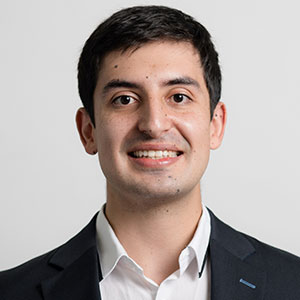
Moderator and Panelist:
David Bernal
Associate scientist in quantum computing at universities Space research association (USRA) and NASA
David Bernal has a Ph.D. in chemical engineering from Carnegie Mellon University, where one of his interests was to study the use of quantum algorithms for nonlinear combinatorial optimization. David is currently an associate scientist in quantum computing at the Research Institute of Advanced Computer Science (RIACS) of the Universities Space Research Association (USRA) and QuAIL at NASA, developing and benchmarking quantum and physics-inspired optimization methods. After this position, David will start a tenure-track position at the Davidson School of Chemical Engineering at Purdue University.
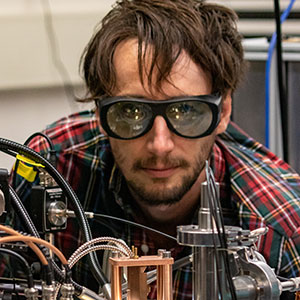
Panelist:
Daniel Higginbottom
Director of Academic Research at Photonic
Dr. Daniel Higginbottom is building quantum technologies with novel silicon qubits. He is Director of Academic Research at the quantum computing company Photonic, a Banting Fellow in the Silicon Quantum Technology laboratory at Simon Fraser University, Canada, and a Visiting Research Fellow at the Australian National University. His research has spanned quantum information with platforms including integrated photonics, optically trapped atoms, electrically trapped ions, and silicon spin qubits.
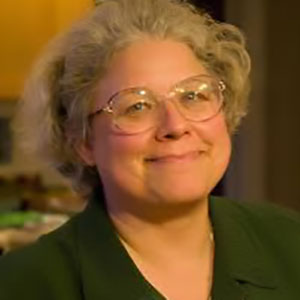
Panelist:
Catherine McGeoch
Senior Scientist at D-Wave Systems
Catherine McGeoch received her doctorate in computer science from Carnegie Mellon University in 1987 and taught at Amherst College for almost 30 years. In 2014, she traded academia for industry and joined the technical staff of D-Wave Systems. Her research focus is on methodologies for empirical analysis of algorithms and heuristics, and more recently on performance evaluation of quantum algorithms and quantum computing systems. She was co-founder of the DIMACS Implementation Challenges and the ALENEX meetings on algorithm engineering and experimentation; and she is past editor-in-chief of the ACM Journal on Experimental Algorithmics. She has authored two books, one on experimental algorithmics, and one on adiabatic quantum computation and quantum annealing.
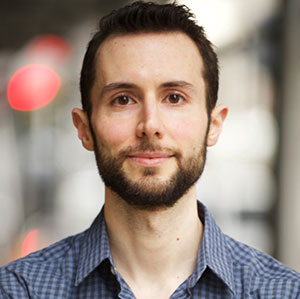
Panelist:
Giacomo Nannicini
Research staff member in quantum algorithms at IBM
Giacomo Nannicini is a research staff member in the Quantum Algorithms group at the IBM T. J. Watson Research Center. Before joining IBM, he was an assistant professor in the Engineering Systems and Design pillar at the Singapore University of Technology and Design. His main research interest is optimization broadly defined and its applications. Giacomo received several awards, including the 2021 Beale–Orchard-Hays prize, the 2015 Robert Faure prize, the 2012 Glover-Klingman prize. His algorithms and software are used by one of the largest real-time traffic and mobility information groups in Europe and in IBM Watson Studio.

Panelist:
Elisabetta Valiante
Principal Optimization Solutions Scientist at 1QBit
Elisabetta Valiante is a principal optimization solutions scientist at 1QBit. She has developed and benchmarked algorithms and hardware solutions for optimization, and has worked on the resolution of practical optimization problems, such as Molecular Similarity and Strategic Asset Allocation. She has a Ph.D. in astrophysics, and has been working at 1QBit for 4 years. She also has 13 years of academic and industry research experience.
Wednesday, June 8
AI and O.R. for Environmental Sustainability
With the increasing anthropogenic pressures of urbanization, agriculture, deforestation, other socio-economic drivers as well as climate change, biodiversity and habitat conservation is a key sustainable development goal. Techniques from AI and O.R. and their hybridization have an important role to play in providing both predictive and prescriptive tools to inform critical decision making, which can help us do more with less in this important application domain. A prime example of the field of Computational Sustainability, this presentation will give several successful examples of the two way street of research providing useful domain solutions to real-world problems, while advancing core methodology in AI and O.R. Key examples include using deep learning and satellite data for land cover mapping, predicting species distributions under climate change and optimizing spatial conservation planning, as well as developing data-driven techniques to curb illicit wildlife poaching and trafficking.
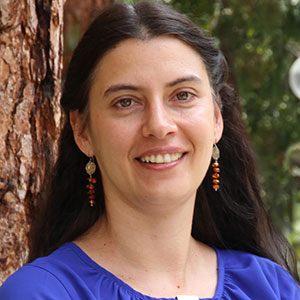
Bistra Dilkina
Associate Professor of Computer Science at the University of Southern California
Dr. Bistra Dilkina is an associate professor of computer science at the University of Southern California, co-director of the USC Center of AI in Society, and the inaugural Dr. Allen and Charlotte Ginsburg Early Career Chair at the USC Viterbi School of Engineering. Her research and teaching center around the integration of machine learning and discrete optimization, with a strong focus on AI applications in computational sustainability and social good. She received her Ph.D. from Cornell University in 2012 and was a post-doctoral associate at the Institute for Computational Sustainability. Her research has contributed significant advances to machine-learning-guided combinatorial solving including mathematical programming and planning, as well as decision-focused learning where combinatorial reasoning is integrated in machine learning pipelines. Her applied research in Computational Sustainability spans using AI for wildlife conservation planning, using AI to understand the impacts of climate change in terms of energy, water, habitat and human migration, and using AI to optimize fortification of lifeline infrastructures for disaster resilience. She has over 80 publications and has co-organized or served as a chair to numerous workshops, tutorials, and special tracks at major conferences.
